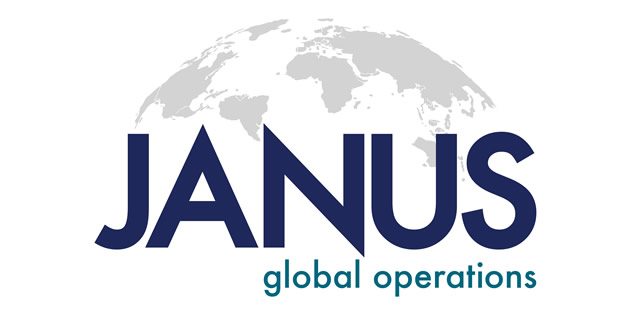The start of the week saw the special representative of the UN secretary-general for Libya, Martin Kobler, calling for a humanitarian pause to the fighting in Benghazi's Ganfouda neighbourhood. Disturbing reports that civilians in the area continue to be caught up in the crossfire and are suffering from shortages of medicine, clean water and food. He said that a humanitarian pause would allow a safe passage for civilians to leave.
The full nine members of the Presidency Council met this week in Tunis to decide who should be in the Government of National Accord. A statement was released commenting that it was unacceptable to decide on a government while outside Libya and a decision will be made on where to convene next.
On the economic front, eastern authorities will allow revenues from rising oil production to be paid into the central bank in Tripoli even though they do not recognize the bank's governor there. The pledge is a sign that authorities in the east, who have resisted a U.N.-backed unity government in Tripoli, may not try to take direct control of oil resources and revenues. They have previously failed in attempts to export oil independently. Following the NOC's reopening of terminals seized by General Haftar, national production rose this week above 500,000 bpd, from lows over the summer of between 200,000 to 300,000 bpd.
Immigration has continued to be at the forefront of the international communities mind, as the EU have been authorized by the UN Security Council to continue with Operation Sophia to intercept and seize boats carrying refugees in the Mediterranean close to Libya for another year. More than 5000 migrants were saved on Tuesday and Wednesday off the Libyan coast and 28 bodies recovered, bringing the total number of people rescued this week to more than 11,000.
Tripoli and the west has seen a sharp increase with incidents over this reporting period. Tensions between Militias are running high and a number of intense armed clashes took place over the weekend which included the use of heavy weapons. Three militia men from the Turki’s Buni Platoon were reported to have been killed as engagements took place against the Haithem al Tajuri’s. Most of the fighting was centred around Al Naeer Street towards Jomhuriya Street. Clashes are expected to resume as tit for tat fighting continues as the political road map materialises. The Rada (Special Deterrence Force) carried out two raids this week, most notably was the arrest of 12 individuals involved in various criminal activities including kidnappings around the city.
Libyan pro-government forces continue advancing into the last area controlled by Islamic State in Sirte backed by US air force targeted strikes. At least eight pro-government fighters were killed over the weekend as their forces pushed into the 600 block, an area in central Sirte, with snipers and booby-traps posing the main obstacles in their advance. At least 560 largely Misratan have died in the fighting since May with more than 2,750 injured.
Dignity Operation forces, led by Khalifa Haftar and backed up by foreign warplanes, carried out at least two airstrikes on residential areas inside the besieged district in Benghazi, Gnafudah. Nine civilians were killed in the airstrikes. Three fighters from Al-Sayiqa (Special Forces) Brigade of Khalifa Hafter’s Dignity Operation were killed Sunday morning in clashes. Fighting continued in the neighbourhood in the Pisces market in the west of the city. Shells detonated leaving 3 dead and 16 injured. Fighting between LNA and ISIS militants near the European Hospital in Al Qawarishah, occurred on Sunday afternoon culminating with 1 LNA fighter killed.
In the South, former pro-Haftar officers controlling forces in the south of the country have backed a new commander in an apparent snub to armed forces commander-in-chief Khalifa Haftar, who was not consulted. However, in naming General Suliman Kanah as the southern commander, the officers meeting at Brak Al-Shatti near Sebha, stressed that their men were under the control of the army, preparing a southern operations room to control and protect the south of the country.
Janus Global Operations continues to keep our permanent expat country management team on the ground in Tripoli supporting our client’s international and local personnel as well as critical infrastructure. We are also currently involved in working with many of our clients on their re-entry planning, security risk management surveys and political sector analysis. To discuss these services further please contact us on the details below.
Libya Security Report Subscription Service
Janus Global Operations Libya Security Summaries are only supplied to existing Libya clients and those who subscribe to our weekly reporting service. For further information on how to subscribe and our monthly costs, please contact our Dubai management team at jason.woods@janusgo.com. The attached Libya security update has been produced by our Tripoli based in-country management team and covers the various security risks, recent incidents, political landscape and geography in both the west and east of Libya.
HEAT & Basic Life Support Two Day Training Courses
Janus Global Operations are now offering bespoke Libya oriented or generic MENA Hostile Environment Awareness & Basic Life Support Medical Training Courses in Dubai or your home country prior to deploying back into Libya, or in country training for those who require this service in Tripoli. Please contact our Dubai Head Office for more information on these courses at jason.woods@janusgo.com
For further information on all our services and for actual support on the ground in Libya please feel free to contact us 24/7 on +218 911713972 or +971 508764175 or visit our website www.janusgo.com





